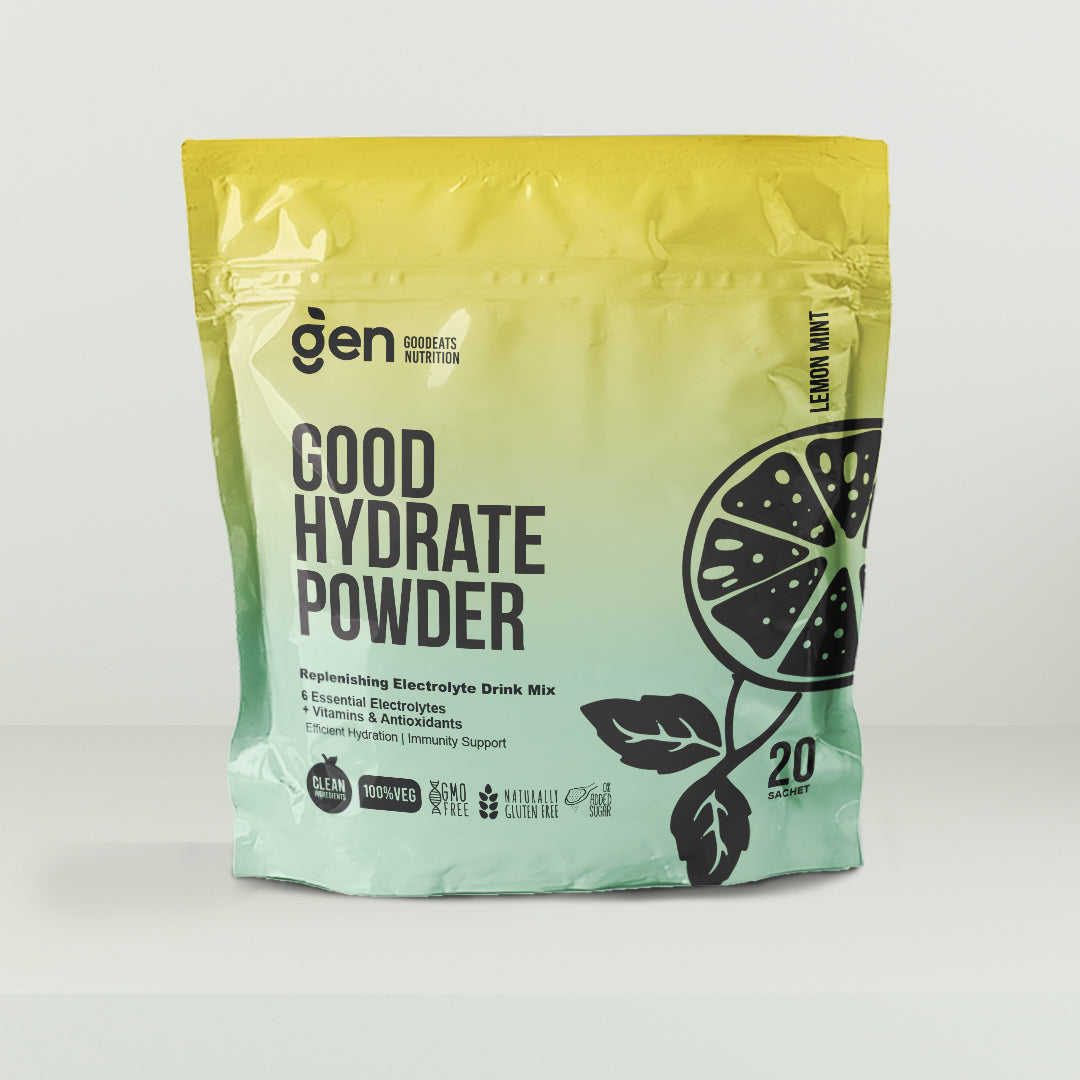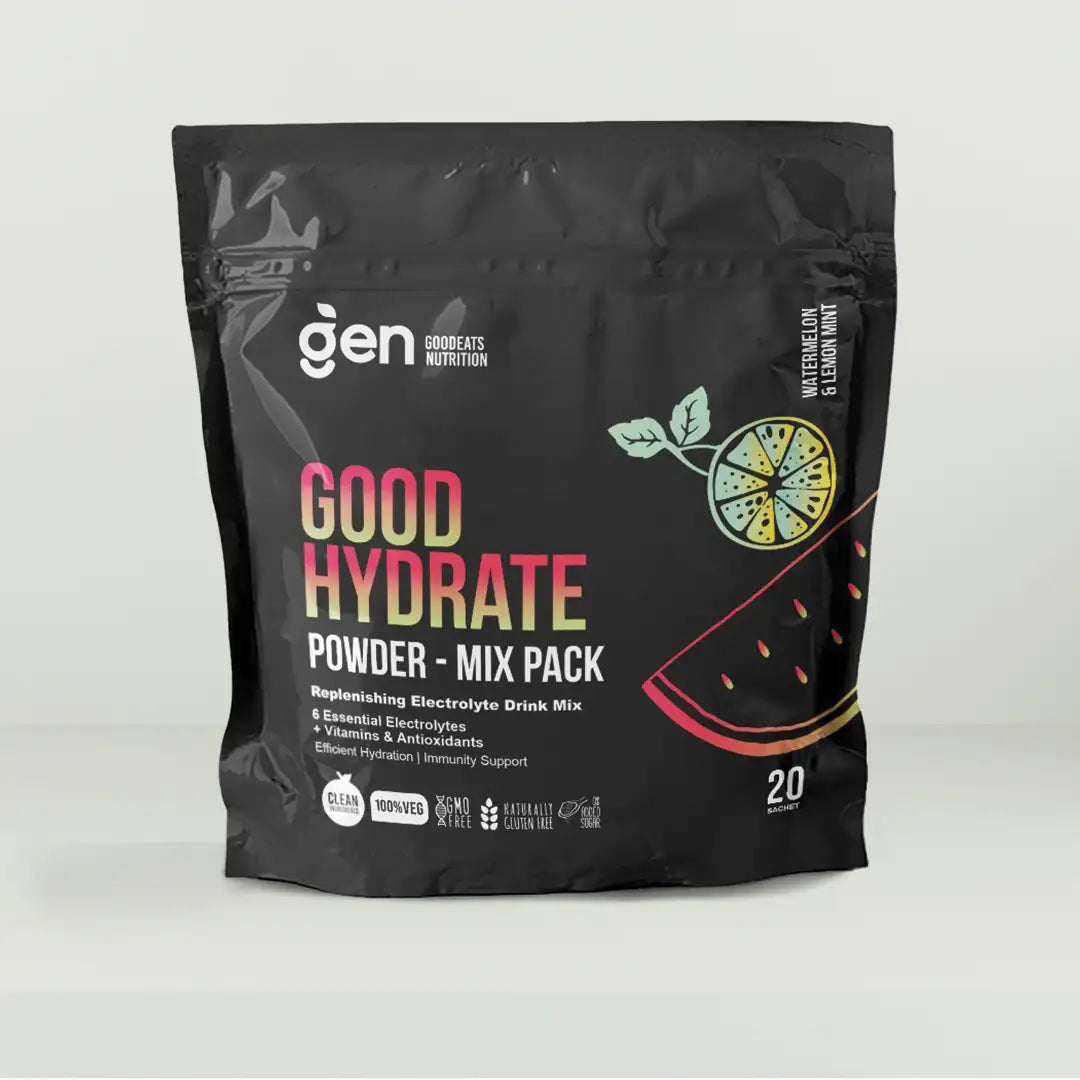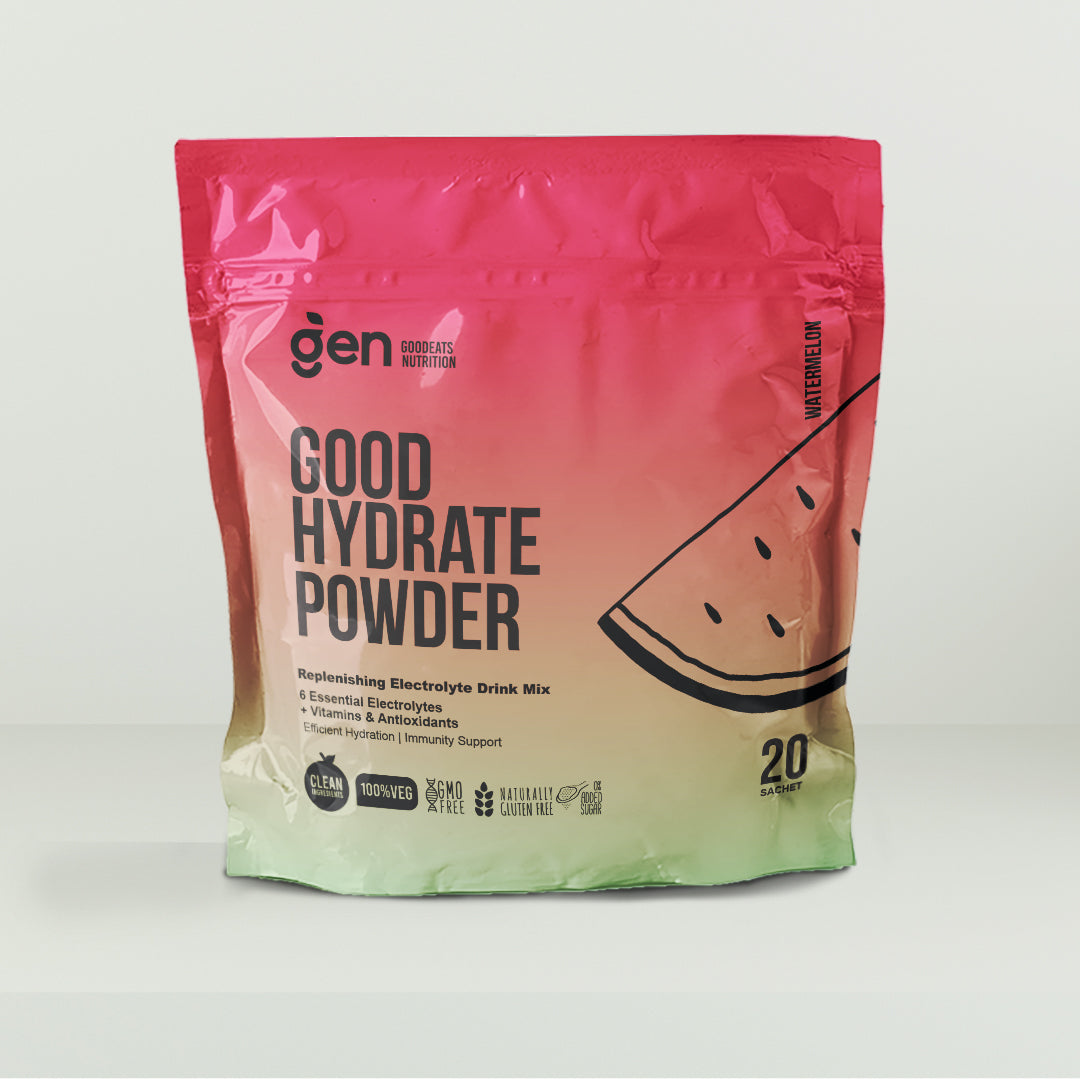When you think of hydration, the first thing that probably comes to mind is drinking enough water. While water is essential, staying truly hydrated involves much more than just sipping H2O throughout the day. Your body needs the right balance of electrolytes, vitamins, and minerals to ensure optimal hydration, energy levels, and overall well-being. Without these essential nutrients, even if you're drinking plenty of water, you might still experience dehydration symptoms like fatigue, muscle cramps, dizziness, and sluggishness.
So, what does it really take to stay hydrated? Let’s dive into the science of hydration and explore the key components your body needs to function at its best.
The Science of Hydration
Hydration affects nearly every function in the body—from regulating temperature and supporting digestion to maintaining energy levels and muscle function. But did you know that drinking too much plain water without replenishing lost electrolytes can actually dilute essential minerals in your system, leading to an imbalance? This can cause symptoms like fatigue, muscle cramps, and headaches. That’s why hydration isn’t just about how much water you drink but also about how well your body absorbs and retains it.
The Role of Electrolytes in Hydration
Electrolytes are minerals that carry an electric charge and play a crucial role in maintaining fluid balance, nerve function, and muscle contractions. Simply put, they help regulate the amount of water inside and outside your cells, ensuring that your body functions smoothly.
Some of the most important electrolytes for hydration include:
- Sodium – Helps retain water in the body and prevents dehydration.
- Potassium – Works with sodium to balance fluids and supports nerve function.
- Magnesium – Essential for muscle relaxation, energy production, and electrolyte balance.
- Calcium – Supports muscle function and cellular hydration.
- Chloride – Works with sodium to help maintain fluid balance.
- Phosphate – Plays an important role in energy production and cellular function.
When you sweat, especially during intense physical activity or hot weather, you lose these vital electrolytes. Simply drinking water won’t replace them, which is why replenishing electrolytes is essential for maintaining proper hydration levels.
Vitamins & Antioxidants
While electrolytes are key players, hydration is also influenced by vitamins and antioxidants, which contribute to energy production, immune function, and cellular repair.
- Vitamin C – A powerful antioxidant that supports immune health and helps reduce oxidative stress caused by dehydration.
- Vitamin B12 – Plays a critical role in energy production, nerve function, and red blood cell formation.
- Zinc & Chromium – Help in regulating metabolism and enhancing cellular hydration.
- When your body is adequately nourished with these essential nutrients, you don’t just stay hydrated—you feel more energized, focused, and resilient against stressors like heat, exercise, and fatigue.
Common Signs of Dehydration
Dehydration isn’t always as obvious as extreme thirst. Some subtle signs that your body isn’t getting enough hydration include:
- Fatigue and low energy – Dehydration slows down circulation, leading to sluggishness.
- Frequent headaches – Lack of proper fluid balance can cause tension headaches.
- Dry skin and lips – Dehydrated skin appears dull and lacks elasticity.
- Muscle cramps – Loss of electrolytes like magnesium and potassium can lead to muscle stiffness and cramps.
- Dizziness and brain fog – Inadequate hydration affects cognitive function and alertness.
Recognizing these early signs can help you take proactive steps to replenish lost fluids and nutrients before dehydration takes a toll on your health.
Hydration Beyond Water: What Else Can You Do?
Drinking water alone isn’t always enough, especially if you’re active, exposed to heat, or following a diet that depletes electrolytes. Here are some additional strategies to optimize hydration:
1. Incorporate Hydrating Foods
Many fruits and vegetables have high water content and naturally contain essential electrolytes and vitamins. Some of the best hydrating foods include:
- Watermelon (92% water + natural electrolytes)
- Cucumbers (95% water)
- Oranges (High in Vitamin C & Potassium)
- Spinach (Rich in magnesium & calcium)
- Coconut water (Contains natural electrolytes)
2. Balance Your Electrolytes
If you’re sweating excessively or experiencing symptoms of dehydration, replenishing sodium, potassium, and magnesium is essential. Himalayan pink salt, coconut water, and electrolyte-rich supplements can help maintain the right balance.
3. Avoid Dehydrating Beverages
Caffeinated drinks, alcohol, and sugary sodas can contribute to dehydration by increasing urine output and disrupting fluid balance. While they may be enjoyable, they shouldn’t replace proper hydration sources.
4. Time Your Hydration Wisely
Instead of chugging large amounts of water at once, sip throughout the day to ensure steady absorption. Drinking water before meals, after workouts, and upon waking helps maintain optimal hydration levels.
A Smarter Way to Rehydrate
While water and hydrating foods are essential, they don’t always provide everything your body needs to stay truly replenished. That’s where Good Hydrate comes in—a smarter, more complete hydration solution that goes beyond just quenching thirst. Good Hydrate is a replenishing, sugar-free electrolyte drink mix designed to support efficient hydration, fluid balance, immunity, and muscle recovery. Packed with six essential electrolytes and vital nutrients, it restores what daily activities, workouts, and travel take out of you.
Why Good Hydrate?
Good Hydrate isn’t just about quenching your thirst—it’s about giving your body exactly what it needs to feel its best. Packed with Himalayan pink salt, potassium, and magnesium, it helps restore essential electrolytes and keeps you feeling balanced and energized. With the added benefits of Vitamin C and Zinc, it supports your immune system, while calcium, B12, and chromium work together to boost endurance and speed up recovery. Plus, it’s super easy to mix and comes in two delicious flavors—Lemon Mint and Watermelon—so staying hydrated feels refreshing, not like a chore. And the best part? It’s sugar-free, gluten-free, and vegan-friendly, making it a clean and convenient way to fuel your body anytime, anywhere.
Hydration Done Right
Staying hydrated isn’t just about drinking water—it’s about nourishing your body with the right balance of electrolytes, vitamins, and minerals. By incorporating electrolyte-rich foods, proper hydration strategies, and a smart & efficient hydration supplement like Good Hydrate, you can stay energized, recover faster, and maintain peak performance throughout your day.
Next time you reach for a glass of water, remember: true hydration is about more than just quenching your thirst—it’s about nourishing your body the right way.






